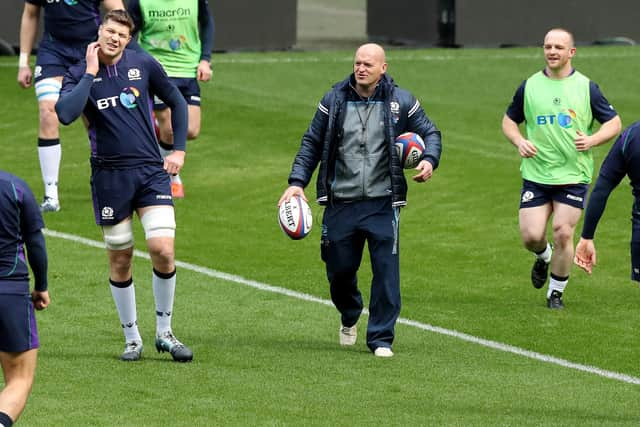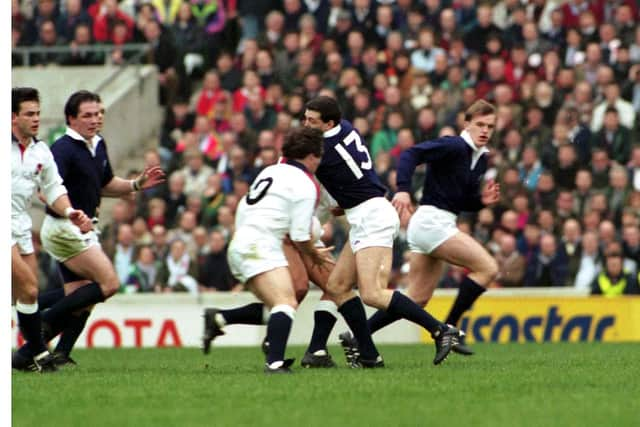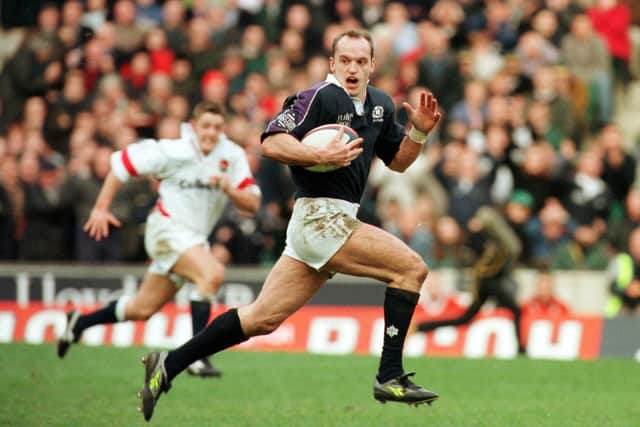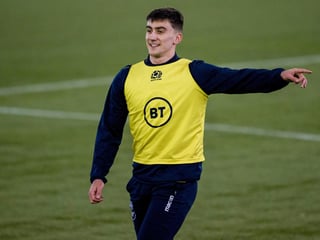Calcutta Cup: ‘We know the importance of the fixture for our people’ says Gregor Townsend as he hints at debut for Cam Redpath


When a cool head was required, the stand-off was too often drawn into the heat of battle, a consequence, he thinks, of growing up around the time of the 1990 Grand Slam match, an occasion suffused with jingoistic fervour.
If watching that never-to-be-forgotten clash had an inordinate influence on his formative years, then Townsend has since been able to put some emotional distance between himself and the fixture.
Advertisement
Hide AdAdvertisement
Hide AdHis record in the last three Six Nations match-ups with England is solid: one win, one draw and one defeat.


The draw came at Twickenham in 2019, meaning Townsend remains unbeaten as a head coach at English rugby’s HQ, a rare boast for a Scot. His record goes on the line on Saturday when Scotland kick off their 2021 Six Nations campaign with a Calcutta Cup clash which marks the 150th anniversary of the oldest international.
It’s not quite a century and a half since Scotland last beat England at Twickenham but it sometimes feels that way.
In the 18 meetings since the Scots prevailed in 1983, England have won 16 and there have been two draws. Townsend knows he has to tread a fine line between ensuring his players understand the importance of the Calcutta Cup while not getting too caught up in its mythology.
“I drew on it too much when I was growing up,” he acknowledged. “I was playing age-group rugby at the time of the 1990 Grand Slam, and when I came up against England at schoolboy level and then played for Scotland at a young age, I put too much emotion into my performances.


“We know the importance of the fixture for our people, the historic importance, the joy it brings when we beat England. That’s there in the background, but from a coaching perspective it’s about [getting] a sense of where the players are.
“If they’re ready throughout their preparation then it doesn’t need much more focus on the emotional side. If we feel they don’t understand the importance of the game, we can add that.
“But I don’t see that with this group. The energy they’re bringing at training, the fact we’ve got so many quality players now competing for positions in the team, it’s about allowing them to go out and express themselves and learn, if you’re in the game, how to win.”
Advertisement
Hide AdAdvertisement
Hide AdTownsend made his Scotland debut at Twickenham in 1993, coming on as a 19-year-old replacement for Craig Chalmers in a 26-12 defeat. He would experience four further Calcutta Cup losses at the stadium, including his own shot at Grand Slam glory in 1995 when England triumphed 24-12 in a final-day, winner-takes-all encounter.


The match in 1999 was the closest Townsend came to beating England at Twickenham and, although the hosts edged the battle 24-21, Scotland won the war, clinching the final ever Five Nations Championship, with Townsend scoring a try in every game.
The coach acknowledges that it can be difficult to persuade your players to play with freedom when history weighs so heavily against them.
“It is a challenge because you have got opposition that are very good and are trying to close you down. It is about going out there with belief in what you can do as an individual, belief in your team-mates but adjusting to each situation, adjusting to where the strengths of the opposition may be, maybe where they are more vulnerable, and executing what you see is right.
“It is about not worrying too much about mistakes. If they happen you get together and say ‘are you alright?’ and ‘what are we going to do different next time?’ and learn from that.
“It is the nature of sport that you have got to do your next job which will probably be a physical job like tackling or running. That will be a big challenge for all of us, coaches and players, going into the first game, because we are up against a team that will test us, that have played really well over the last few months and are full of confidence.”
England are reigning Six Nations champions and also won the Autumn Nations Cup. But Townsend struck an early blow against them by persuading Cameron Redpath to swap the rose for the thistle, and the Scotland coach sounds as if he is ready to pitch the Bath centre in for his debut at Twickenham.
“The way Cam is as a person and the way he plays, there is a maturity about him, around how he sees a game and how he speaks his mind,” said the coach. “And there is a fearless side of him that I believe would take on any challenge.
Advertisement
Hide AdAdvertisement
Hide Ad“I really loved the way he played against Exeter in the semi-finals of last year’s Premiership. Exeter were dominant in that game on their home ground but Cam was one of the stand-out players that kept taking the game to the opposition.
“That is a great mindset when you are going into such a tough arena and as tough a game as England, if he was to be involved.
“An advantage for Cam and all our young players coming through is it is different this year with no crowds and you are playing a very good side but you are playing a side that doesn’t have the 80,000 supporters and the atmosphere that creates.
“If guys are making their debuts this year it is probably a good time to do it in away games. They will miss a home debut with the crowd behind us but for away games it does level the playing field a little.”
A message from the Editor:
Thank you for reading this article. We're more reliant on your support than ever as the shift in consumer habits brought about by coronavirus impacts our advertisers.
If you haven't already, please consider supporting our trusted, fact-checked journalism by taking out a digital subscription.
Comments
Want to join the conversation? Please or to comment on this article.
